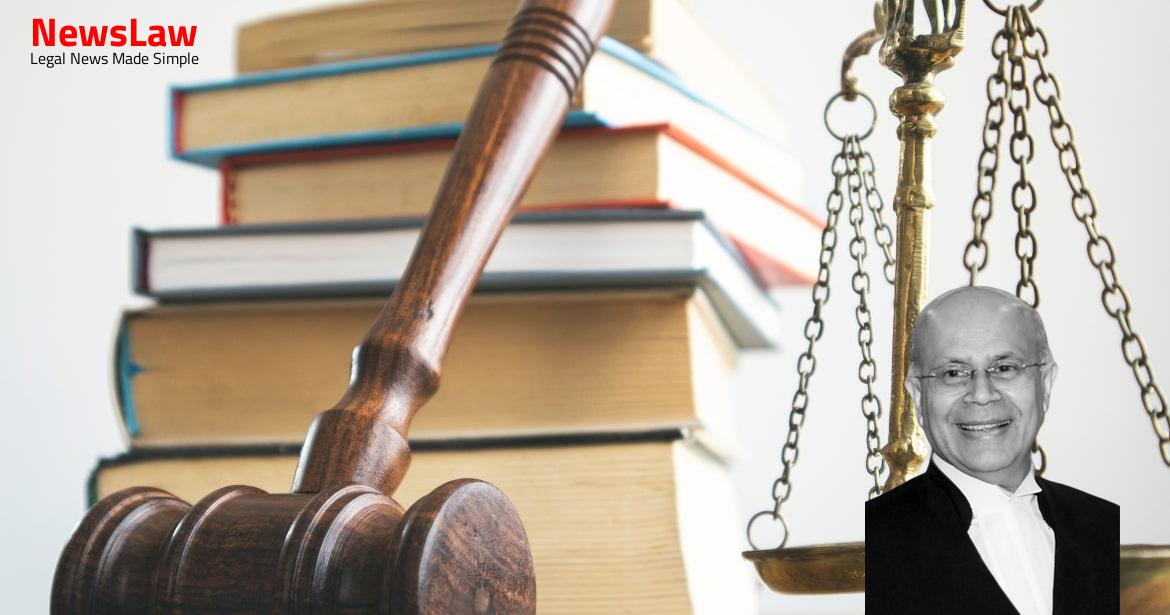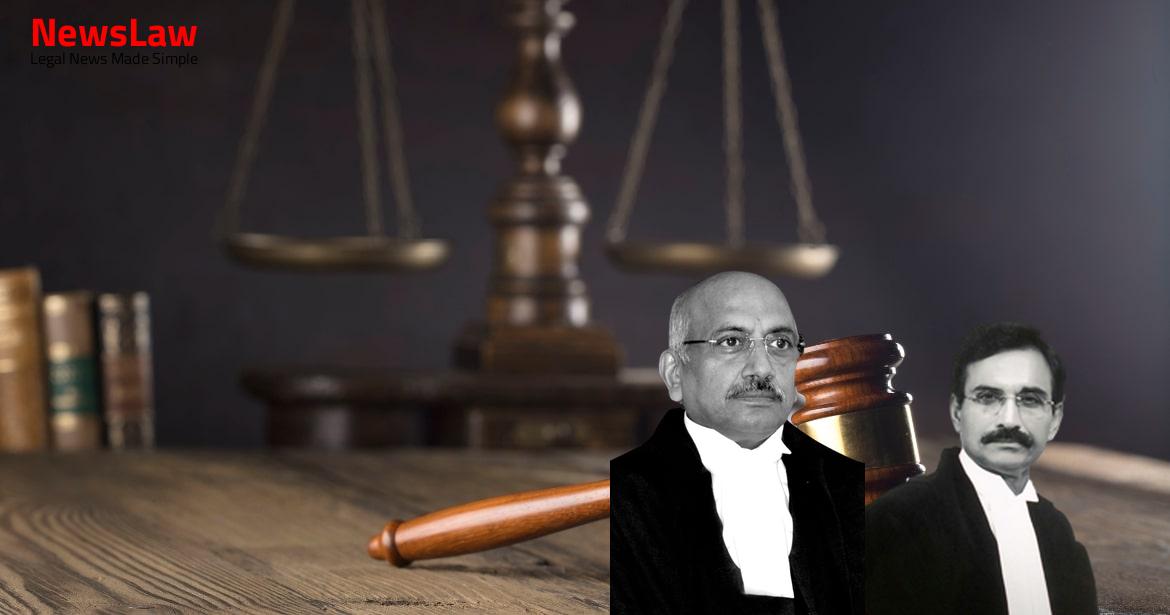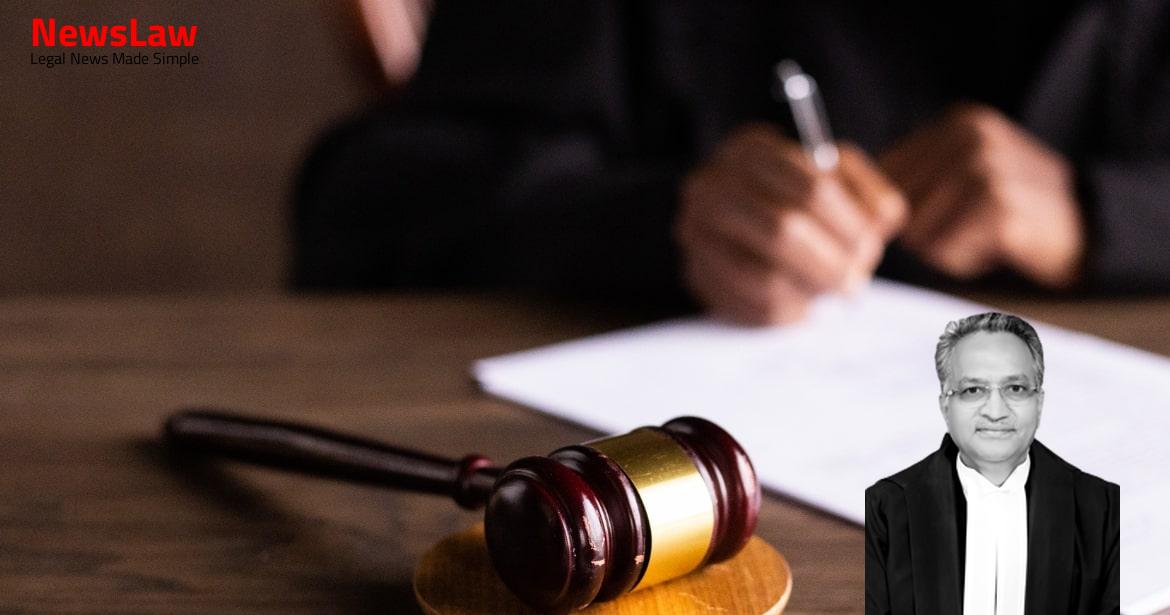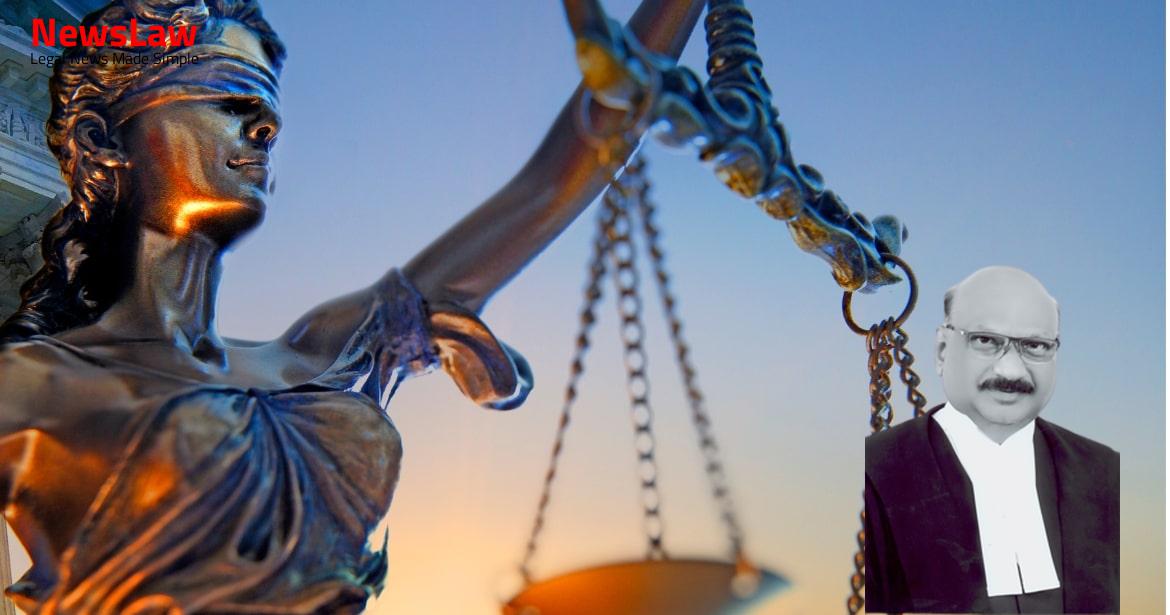In a significant legal development, the court emphasizes the importance of the presumption of genuineness in documents over thirty years old. The case delves into the intricacies of Section 90 of the Evidence Act, shedding light on the ease of proving old documents’ validity. This insightful legal analysis sets a precedent for future cases involving the admissibility and authentication of aged documents.
Facts
- The suit property in question is no. 44/6 in J.C. Road, Bangalore, measuring 90 ft. x 110 ft.
- Appellants appealed against the rejection of their plaint seeking permanent injunction, initially dismissed but later allowed by the High Court in R.F.A. No.116/1990.
- The matter was remanded to the High Court from this court in C.A. No. 2072/2000 on 22.07.2004.
- Appellants claimed ownership through sale deeds dated 10.07.1956, 08.04.1958, 21.08.1959, and 27.09.1962.
- The respondents did not claim title to the suit property but attempted to question the appellants’ title vaguely.
- The High Court’s conclusion on the suit property’s identity not being established is deemed as perverse and contrary to the evidence.
Also Read: Challenges with Dying Declarations in Legal Analysis
Issue
- The question of title of the appellants was not considered among the issues raised.
- The High Court framed the issues related to the plaintiffs proving their lawful possession of the suit property and interference by the defendants.
- The issues centered around the proof of the identity of the suit schedule property, lawful possession by the plaintiffs, and interference by the defendants.
- There was a specific inquiry into whether the plaintiffs have to pay court fees based on the market value of the property mentioned in the pleadings of the plaint.
Also Read: Promotion Dispute: Seniority-cum-Merit Principle
Analysis
- Section 90 of the Evidence Act, 1872 allows for a presumption regarding documents that are thirty years old.
- The presumption includes the handwriting, signature, and execution of the document as presented.
- The onus is on the person disputing the document to prove otherwise.
- The necessity and convenience of Section 90 arise due to the difficulty in proving handwriting, signature, or execution of old documents after thirty years.
- The case of Lakhi Baruah vs Padma Kanta Kalita, (1996) 8 SCC 357, emphasized the admissibility of thirty-year-old documents produced from proper custody.
- Non-appearance of a witness who could provide relevant testimony may lead to adverse presumption as per Section 114 of the Evidence Act, 1872.
- The appellants successfully established their lawful possession of the suit property.
- The trial court Judge’s appreciation of evidence and conclusions were questioned.
- The photocopies of documents were marked as exhibits without objection.
- Attempts to procure certified copies from the municipality were unsuccessful.
- The finding that the appellants failed to establish title and lawful possession was deemed perverse and unsustainable.
- The presumption of genuineness may be raised if documents are from proper custody.
- The failure to produce originals or certified copies of documents was explained as untraceable.
- The conclusion that the identity of the suit property was not established was also held to be perverse.
- The appellants were seeking the relief of permanent injunction only.
- The respondents produced a certified copy of a document dated 07.09.1946.
- The rejection of documents more than 30 years old from proper custody was without valid reason.
- The court has discretion to accept the presumption under Section 90 of the Indian Evidence Act.
- Judicial discretion under Section 90 should not be exercised arbitrarily and without reasons.
- The impugned orders dismissing the suit and the appeal are not sustainable.
- The appellants were wrongly denied the relief of permanent injunction.
- The Trial Court and the High Court incorrectly focused on deciding the title of the appellants, leading to an erroneous conclusion.
Also Read: Legal Analysis on Essentiality Certificate and Medical College Establishment
Decision
- Orders of the Trial Court and the High Court dismissing the suit were set aside
- Appeal was allowed
Case Title: IQBAL BASITH Vs. N. SUBBALAKSHMI . (2020 INSC 696)
Case Number: C.A. No.-001725-001725 / 2010



